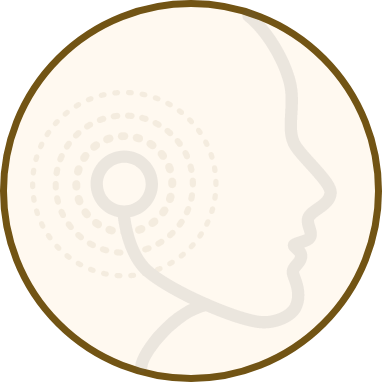 When it comes to seeing the dentist, your smile is more than just looking after your teeth and gums. It’s also about how your mouth functions when you’re chewing or speaking. All of that motion boils down to two areas: the temporomandibular joints (TMJ) on each side of your mouth.
When it comes to seeing the dentist, your smile is more than just looking after your teeth and gums. It’s also about how your mouth functions when you’re chewing or speaking. All of that motion boils down to two areas: the temporomandibular joints (TMJ) on each side of your mouth.
Neuromuscular dentistry considers a balance of achieving healthy muscle movement (physiology) as your oral anatomy relates to the structures around it.
Your body’s physiology plays a direct impact on things such as
- Abnormal tooth wear
- Misaligned teeth
- Neck, shoulder or back pain
- Headaches
- Sleep problems
- TMJ disorder
Fortunately, holistic dentistry incorporates neuromuscular strategies to correct these problems in a minimally to non-invasive manner. As such, you enjoy a wider range of motion while protecting the integrity of your healthy tooth enamel.
Types of Neuromuscular Treatments
Neuromuscular strategies vary from person to person, depending on which types of ailments affect you.
For example, constant bruxism (clenching and grinding) may be causing you frequent headaches. To alleviate your muscle tension and train your jaw not to fully engage while you’re resting, a bite splint may be needed.
Or, you could have an uneven bite due to misaligned teeth. As a result, you’re moving your jaw in an atypical fashion when you eat. Aligning your bite with orthodontic appliances can help your mouth function in a natural, healthier manner.
The neuromuscular treatment you need will be different from that of your friend or neighbour. Strategies are adjusted and combined to fit your unique situation. From physical therapy to restorative approaches or muscle relaxation, your muscle and nervous system are trained to work the way nature intended. This holistic strategy minimises the need for medications or surgery when symptoms become severe.
Do You Have TMJ Disorder?
Our holistic dentists use neuromuscular dentistry strategies to correct your TMJ pain in the least invasive manner possible. If you suffer from frequent headaches, joint clicking or muscle pain, it could be due to the way your mouth is functioning and moving thousands of times per day. Schedule a consultation to find out how we can help you live pain-free again.

